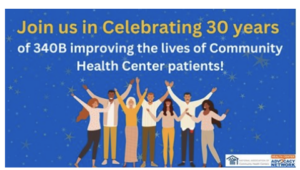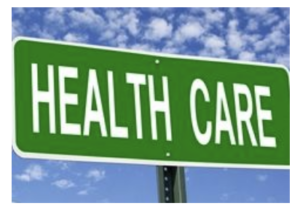- Social Factors Help Explain Worse Cardiovascular Health among Adults in Rural Vs. Urban Communities
- Reducing Barriers to Participation in Population-Based Total Cost of Care (PB-TCOC) Models and Supporting Primary and Specialty Care Transformation: Request for Input
- Secretary Kennedy Renews Public Health Emergency Declaration to Address National Opioid Crisis
- 2025 Marketplace Integrity and Affordability Proposed Rule
- Rural America Faces Growing Shortage of Eye Surgeons
- NRHA Continues Partnership to Advance Rural Oral Health
- Comments Requested on Mobile Crisis Team Services: An Implementation Toolkit Draft
- Q&A: What Are the Challenges and Opportunities of Small-Town Philanthropy?
- HRSA Administrator Carole Johnson, Joined by Co-Chair of the Congressional Black Maternal Health Caucus Congresswoman Lauren Underwood, Announces New Funding, Policy Action, and Report to Mark Landmark Year of HRSA's Enhancing Maternal Health Initiative
- Biden-Harris Administration Announces $60 Million Investment for Adding Early Morning, Night, and Weekend Hours at Community Health Centers
- Volunteer Opportunity for HUD's Office of Housing Counseling Tribe and TDHE Certification Exam
- Who Needs Dry January More: Rural or Urban Drinkers?
- Rural Families Have 'Critical' Need for More Hospice, Respite Care
- Rural Telehealth Sees More Policy Wins, but Only Short-Term
- States Help Child Care Centers Expand in Bid To Create More Slots, Lower Prices
New Report Released on CCBHC Nationwide Impact
This week, the National Council for Mental Wellbeing released a new report highlighting the role of Certified Community Behavioral Health Clinics (CCBHCs) in addressing mental health and substance disorders over the last year. This information features data on CCBHC and FQHC partnerships. Approximately 2.1 million people seek care from CCBHCs around the country.
Six Pennsylvania Counties Classify as “Maternal Health Deserts”
According to a new March of Dimes report, which uses data from the U.S. Health Resources and Services Administration, six of the commonwealth’s 67 counties—Cameron, Forest, Greene, Juniata, Sullivan, and Wyoming—qualify as maternal health deserts because “there were no hospitals providing obstetric care, no birth centers, no OB/GYN and no certified nurse midwives. “That is completely intolerable,” Pennsylvania Physician General Dr. Denise Johnson said in a statement, adding that more than 105,000 women between 18-44 years of age live in counties with little or no obstetric care. Nationally, the report found that more than 2.2 million women of childbearing age live in maternity care deserts with Medicaid covering nearly 50% of births in maternity care deserts, compared to 40.1% in counties with full maternity care access. Pennsylvania has extended Medicaid coverage to pregnant persons as part of the American Rescue Plan’s optional Medicaid expansion, increasing the length of coverage from 60 days to one year. The overall maternal mortality rate in Pennsylvania is 82 deaths per 100,000 live births. For Black Pennsylvanians, who are already disproportionately impacted by poverty and have less access to adequate health care, the mortality rate is 163 per 100,000 live births, according to the PA Department of Health. 
Health Insurance Open Enrollment on Pennie Is in Full Swing
Representatives from the Pennsylvania Insurance Department, Pennie, and PACHC celebrated the beginning of health insurance marketplace open enrollment at a press event at Sadler Health Center in Carlisle. The event was to remind Pennsylvanians that Pennie, the commonwealth’s official online health insurance marketplace, is now open for all Pennsylvanians to apply, compare plans, and enroll in high-quality health coverage. This annual Open Enrollment period is from Nov. 1, 2022, to Jan 15, 2023, with customers needing to choose a plan by Dec. 15 for Jan. 1, 2023 coverage. Customers can take advantage of substantial savings on 2023 coverage created by the American Rescue Plan and extended by the Inflation Reduction Act. Nine out of 10 Pennie customers qualify for financial savings, meaning most are eligible for subsidized monthly premiums on their health insurance. Currently, nearly 40% of Pennie customers pay less than $75 a month. Amidst rising inflation, Pennie helps keep insurance costs down, and Open Enrollment is the opportunity for Pennsylvanians to protect their health and wallets by getting the coverage and care they need.
Advancing Health Equity Briefs Have Been Released
The Center for Health Care Strategies issued two briefs discussing the growing consensus among national healthcare policy experts that aligning delivery system and payment reform efforts with health equity goals offers critical opportunities to reduce disparities in health and health care, particularly among Medicaid populations. The briefs are products of Advancing Health Equity, a national initiative of the Robert Wood Johnson Foundation that is working with states to address disparities through innovative Medicaid payment and contracting models. At the center of the briefs’ proposals are five core components of a strategic plan. Under a previous learning collaborative launched in 2019, key partners and stakeholders, including North Side Christian Health Center in Pennsylvania, helped to design a value-based payment and contracting model that would support and incentivize healthcare delivery transformation to reduce and eliminate disparities in health and healthcare.
How State-based Marketplaces Are Boosting Enrollment of the Uninsured
With additional subsidies through the American Rescue Plan and Inflation Reduction Act, State-based Marketplaces (SBM) like Pennie in Pennsylvania can be more creative in crafting ways to help consumers access additional cost savings. By increasing premium subsidies for individuals with lower to moderate incomes, marketplace enrollment reached a record high for the 2022 open enrollment period. SBMs typically invest more in marketing, enrollment assistance, and system enhancements for ease of enrollment. In-person enrollment assistance and boots-on-the-ground strategies allow SBMS to pinpoint and access harder-to-reach populations and the uninsured. Pennsylvania has reached a historic low of 5.4% uninsured. Read more about it here.
Happy Birthday, 340B Program!
Thirty years ago, lawmakers passed the 340B Discount Drug Program. Community Health Centers have invested the resulting savings into services to ensure comprehensive, equitable care for over 30 million patients. Now is the time to remind legislators that this vital program allows health centers to reinvest the 340B generated savings into vital services for the communities they serve such as affordable medication, behavioral health services, transportation, and food pantries. This is an excellent time to say thank you to your legislators and share how important this program has been and is to your health center and the people you serve.
Pennsylvania Governor Signs Audio-Only Telehealth Behavioral Health Bill into Law
On Oct. 28, 2022, House Bill 1630 was signed into law by Gov. Tom Wolf as Act 98 of 2022 and is effective immediately. This law repealed three sections of the Office of Mental Health and Substance Abuse Services (OMHSAS) regulations at 55 Pa. Code § 1153.14(1); § 1223.14(2); and § 5230.55(c) that were previously suspended by the Public Health Emergency. Behavioral Health (BH) providers now may deliver and bill for BH services through audio-only telehealth for both Outpatient Psychiatric Services and Outpatient Drug and Alcohol Services that are consistent with OMHSAS bulletin OMHSAS-22-02, titled “Revised Guidelines for the Delivery of Behavioral Health Services Through Telehealth” that was issued on July 1, 2022. Additionally, BH providers delivering Psychiatric Rehabilitation Services now have the ability to provide supervision through a video or audio platform.
Pennsylvania Supreme Court Rules Against Counting of Undated Mail-in Ballots
Pennsylvania officials may not count votes from mail-in or absentee ballots that lack accurate, handwritten dates on their return envelopes, the state Supreme Court ruled unanimously Tuesday, a week before tabulation will begin in races for governor, the U.S. Senate, and the state General Assembly. The court directed county boards of elections to “segregate and preserve” those ballots, the Associated Press reported. The justices split 3-3 on whether making the envelope dates mandatory under state law would violate provisions of the U.S. Civil Rights Act of 1964, which states that immaterial errors or omissions should not be used to prevent voting.
Read About Community Stars Promotional Toolkit
National Rural Health Day (NRHD) is fast approaching, and enthusiasm is building for this year’s Community Star Recognition Program!
NOSORH is excited to share the 2022 Community Stars Toolkit to help you share the news about your Community Star and celebrate their accomplishments leading up to NRHD!
When you click this link, you’ll be directed to a password-protected page on the NOSORH website (password: CS2022), where you’ll find each state’s folder and promotional materials for download.
Each state has a folder with the following tools:
- Nomination form submitted by the nominator
- Personalized Star recognition certificate
- *NEW* personalized social media post honoring each Star
Promotional materials available for download:
- Template press release
- Community Star logos
Please note that we cannot provide the individual pages from the book as they are still under development.
CDC Releases the Suicide Prevention Resource for Action
 The Centers for Disease Control and Prevention (CDC) updated, expanded, and renamed its former guide Preventing Suicide: A Technical Package of Policy, Programs, and Practices. The resource now includes strategies with the best available evidence to prevent risk for suicide to lessen the immediate and long-term harms of suicidal behavior for individuals, families, and communities. Recent data from the CDC showed that suicide rates were consistently higher in rural areas than in metropolitan areas, with the highest rates among non-Hispanic American Indian/Alaska Natives in rural counties.
The Centers for Disease Control and Prevention (CDC) updated, expanded, and renamed its former guide Preventing Suicide: A Technical Package of Policy, Programs, and Practices. The resource now includes strategies with the best available evidence to prevent risk for suicide to lessen the immediate and long-term harms of suicidal behavior for individuals, families, and communities. Recent data from the CDC showed that suicide rates were consistently higher in rural areas than in metropolitan areas, with the highest rates among non-Hispanic American Indian/Alaska Natives in rural counties.

